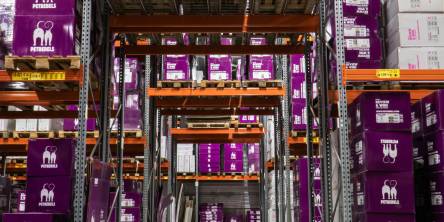Data Warehouse Tools: Factors to Keep in Mind Before Choosing

A data warehouse is a collection of data from different sources that is stored in a way that makes it easy to analyze. Data warehouses are used by businesses to make better decisions, improve operations, and gain a competitive advantage.
Benefits of using a Data Warehouse
- Improved decision-making: Data warehouses can help businesses make better decisions by giving them access to historical and current data.
- Improved operations: Data warehouses can help businesses improve their operations by providing insights into their business processes.
- Competitive advantage: Data warehouses can help businesses gain a competitive advantage by providing access to data their competitors do not have.
Suppose you are looking for a way to improve your business. In that case, a data warehouse may be the right solution for you since it can help you make better decisions, improve operations, and gain a competitive advantage, among other things. And the selection of the right data warehouse tools is equally crucial to harness the power of their data & to derive meaningful insights. While many options are available in the market today, choosing the ideal data warehouse tool would require careful evaluation of several key factors.
With this blog post, I aim to provide a comprehensive overview of the critical considerations for businesses to consider when finalizing data warehouse tools. And by understanding these factors and their implications, companies can make informed decisions & invest in the right tools that align with their specific needs. Further, it would enable them to unlock the full potential of their data analytics initiatives.
But before you pick a data warehouse, do not forget to factor in the following considerations for choosing the right data warehouse:
- Determine data source: The first step in choosing a data warehouse is determining what data you need to store. This will help you narrow your options and choose a data warehouse that can handle the volume and type of data you need. There are two main types of data sources: structured and unstructured. Structured data is organized in a regular format, such as a table. Unstructured data is not collected in a standard format, such as text documents, emails, and images. Most data warehouses can handle both structured and unstructured data. However, some data warehouses are better suited for certain types of data.
- Define budget: Data warehouses can range in price from a few thousand dollars to millions. Setting a budget before you start shopping is essential so you don't overspend. A few factors will affect the cost of a data warehouse, including the size of the data warehouse, the features you need, and the vendor you choose.
- Performance: One of the most important factors to consider when choosing a data warehouse is performance. It would help if you ensured the data warehouse could handle the volume of queries you'll be running. A data warehouse's performance is affected by several factors, including the hardware you use, the software you choose, and the way you design your data warehouse.
- Automation capabilities: Data warehouses can be complex to set up and manage. If you don't have the resources to do it yourself, you must choose a data warehouse with automation capabilities. Automation capabilities can help you save time and money by automating tasks such as data loading, cleansing, and analysis.
Choosing the right data warehouse is an important decision. There are many factors to consider, including the type of data you need to store, your budget, performance requirements, and automation capabilities. Cloud data warehouse tools offer several advantages over traditional data warehouses, including scalability, flexibility, and cost-effectiveness. Consider your specific needs and requirements when choosing a cloud data warehouse tool
Similar Articles
For modern businesses to thrive, ensuring the effective management of inventory stands has become vitally important. Inventory management stands as a cornerstone of success. And the emergence of the Internet of Things (IoT) has introduced a new era of connectivity and efficiency across diverse industries.
Do you know what the following e-commerce companies have in common: Amazon, Walmart, eBay, and more? All of these e-commerce companies' apps make use of Java. Java is decidedly among the leading choices of programming language for e-commerce applications because it offers a world of benefits; for example, since Java code can be run on any platform with a Java Virtual Machine (JVM), users of e-commerce apps made with Java can access the said apps on a variety of devices.
Nikola Tesla in 1926, once described what is now called a mobile phone as a telephone that can fit into one's “vest pocket.” As otherworldly as that idea was then, nearly a century later, the reality is even more astounding.
Given the staggeringly high amounts of data being generated worldwide every single day, it ought to come as no surprise that organizations often struggle to pick the right tools to help them effectively harness the potential of all their data.
Managing properties can be a difficult task with the right tools. Property owners must find and use the best property management software. It can be a long and tedious process as there are many options in the property management software market.
In the ever-evolving financial services landscape, industry challenges are numerous and complex. From stringent regulations to rapidly advancing technology and changing consumer expectations, financial institutions face many obstacles.
The human learning capability is a great resource for helping technology evolve and grow, breaking boundaries, and creating new ones. Emulating the ability of humans to learn at a gradual but retentive pace, Machine Learning is the latest power monster that is redefining human-machine interaction.
In the ever-evolving landscape of low-code development, Microsoft's Power Platform stands out as a powerful tool for building custom applications. In today's dynamic digital landscape, creating and managing web pages is no longer the exclusive realm of professional web developers
In the data-driven business world, where information is of utmost priority, organizations are increasingly turning to data warehousing and data marts to harness the power of their data. These data management solutions are pivotal in transforming raw data into actionable insights.









